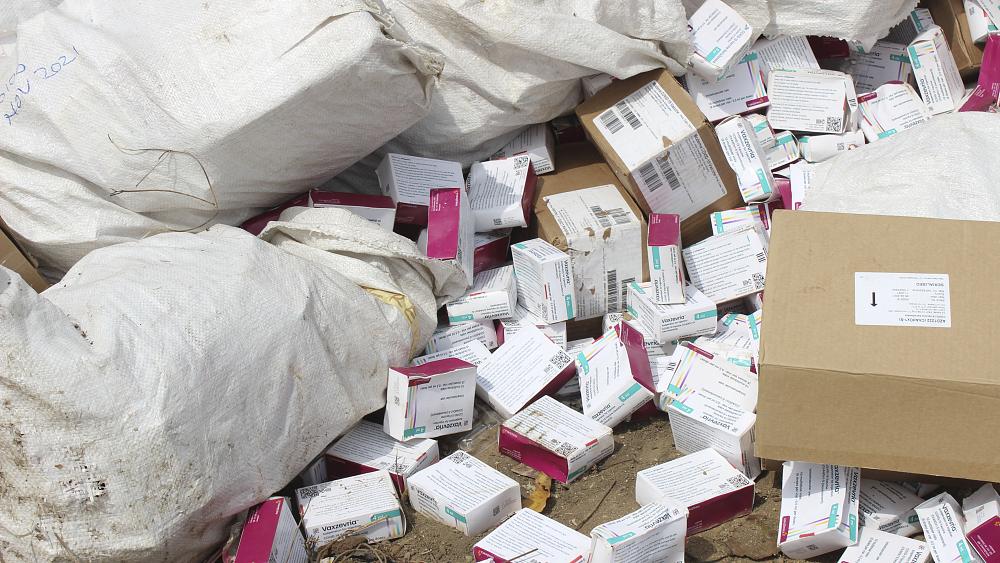
Developing countries turned away some 100 million doses of COVID-19 vaccines because they were about to expire, the United Nations said.
The United Nations Children’s Fund (Unicef), which plays a major role in the international Covax mechanism as the main logistics partner for the distribution of vaccines in disadvantaged countries, now says these countries will not accept vaccines that are too close to the expiry date.
“Over a hundred million doses were refused” in December, Unicef Supply Division director Etleva Kadilli told the European Parliament’s Development Committee, explaining that the majority of refusals were due to the expiry date.
She explained that these countries needed doses that could be stored long enough in order to plan vaccination campaigns and immunise “populations living in hard-to-reach areas and in fragile contexts”.
The World Health Organization has repeatedly condemned rich countries for buying up the global supply of COVID-19 vaccines and only leaving doses that are set to expire for poorer countries.
At the end of December, Nigeria incinerated more than a million doses of AstraZeneca’s COVID-19 vaccine which had been sent to the country despite them being set to expire.
Kadilli also explained that about a third of the doses provided by Covax were donations from European countries.
In October and November, 15 million doses donated by the European Union were refused by poor countries, 75% of which were AstraZeneca vaccines whose shelf life once the vaccines reached their destination was less than ten weeks.
More than 9.4 billion doses of vaccines have now been administered worldwide, WHO director-general Tedros Adhanom Ghebreyesus said on Thursday.
But at least 90 countries have not reached the 40% vaccine target that had been set for the end of 2021, he said, and more than 85% of Africa’s population, or about one billion people, has not yet received a single dose of vaccine.
Related posts:
Views: 0
 RSS Feed
RSS Feed

















 January 14th, 2022
January 14th, 2022  Awake Goy
Awake Goy  Posted in
Posted in  Tags:
Tags: 
















